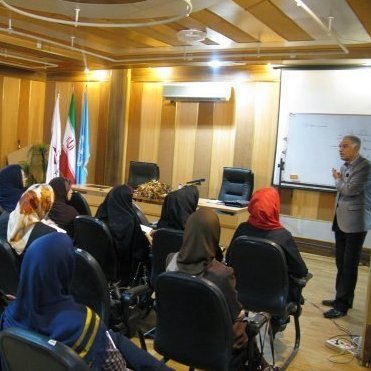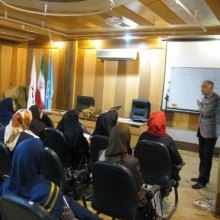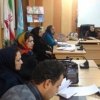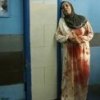
Educational Workshop on the Analysis of Reciprocal Communication; Violent Free...
Educational Workshop on the Analysis of...
 The workshop started with the reading of the UN Secretary-General’s message for the day by a representative from UNIC in Tehran:
The workshop started with the reading of the UN Secretary-General’s message for the day by a representative from UNIC in Tehran:
“Today we celebrate the birthday of Mahatma Gandhi – a global giant for justice, respect for diversity and fundamental human rights.
His legacy of non-violence still resonates.
Gandhi showed the power of peacefully opposing oppression, injustice and hatred.
His example has inspired many other history-makers such as Martin Luther King Jr., Václav Havel, Rigoberta Menchú and Nelson Mandela.
Their message to each of us is to champion human dignity and reject intolerance.
We must work for a world where people of all cultures and beliefs live together in mutual respect and full equality.
Non-violence does not mean non-action.
It takes courage to stand up to those who use violence to enforce their will or beliefs.
It requires resolve to face down injustice, discrimination and brutality.
It takes strength to move from conflict to peaceful negotiation.
Some of history’s greatest leaders rejected the battleground for the negotiating table.
Durable peace cannot be won through force of arms.
That is why I have insisted throughout the war in Syria that all concerned must work for a political solution.
That includes the parties – and those who can influence them.
Whatever one’s sympathies or convictions, violence is a poor means to an unsatisfactory end.
As Gandhi said, and I quote:
“I object to violence because when it appears to do good, the good is only temporary; the evil it does is permanent.”
End of quote.
Violence can be contagious, but so can peaceful dialogue.
The United Nations stands for the peaceful resolution of disputes and the end to all forms of violence, whether state-sponsored or imbedded in culture and practice.
This includes the systemic violence and intimidation that women and girls endure in all regions.
Ending such violence starts with each of us – in homes and schools, workplaces and communities.
The United Nations is also focused on ending poverty in a generation.
As Gandhi reminded us, poverty is inherently violent to the needs and aspirations of the world’s most vulnerable people.
That is why we place such emphasis on fulfilling the promise of the Millennium Development Goals by 2015.
It is why we are working to set a new development agenda with poverty at its core and sustainable development as its guide.
With growing populations and increasing pressures on resources, we need also to be aware of the violence we inflict on the natural world.
As we set sights on a sustainable future we must be guided by the imperative to “do no harm” to people or the planet.
Non-violence needs leaders – across nations and in communities and homes.
And it needs to be backed by an army of brave people prepared to demand peace, freedom and fairness.
On this International Day of Non-Violence, let us draw strength from the courage of individuals like Mahatma Gandhi.
Let us send a message far and wide:
Turn your back on division and hatred.
Stand up for what is right.
Work together for a world of lasting justice, peace and prosperity for all.”
This was followed by the workshop with guest expert Dr. Mansour Bahrami in two morning and afternoon sessions.
 Reload
Reload


